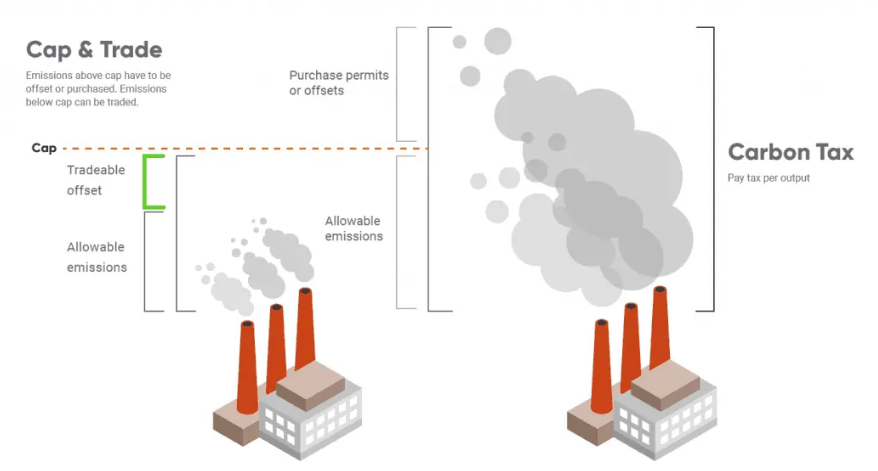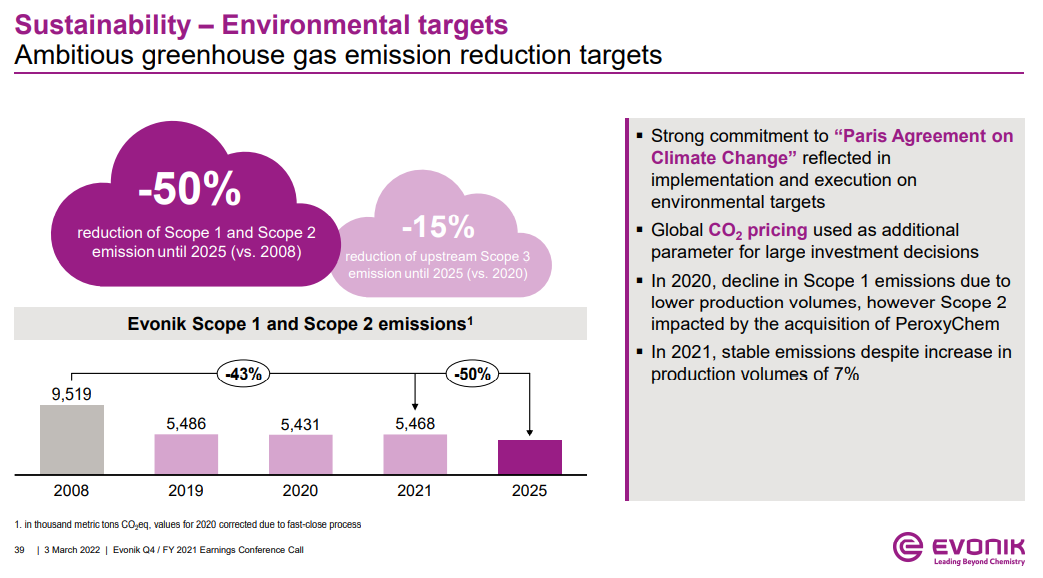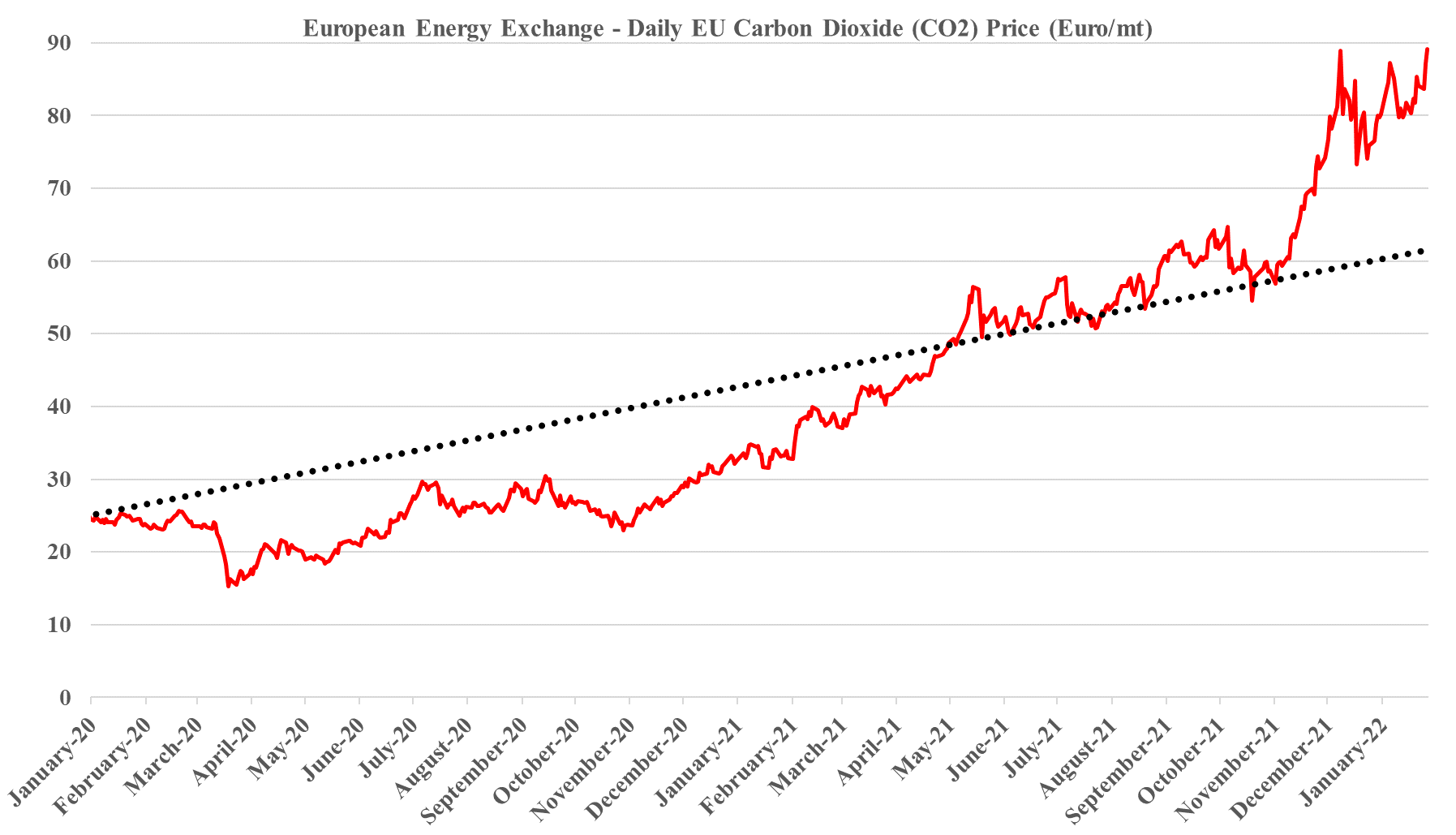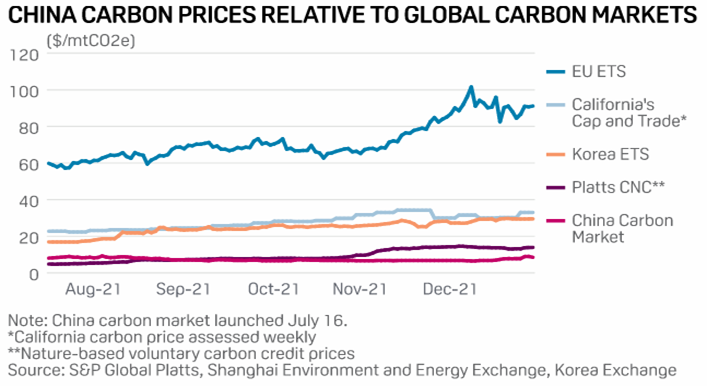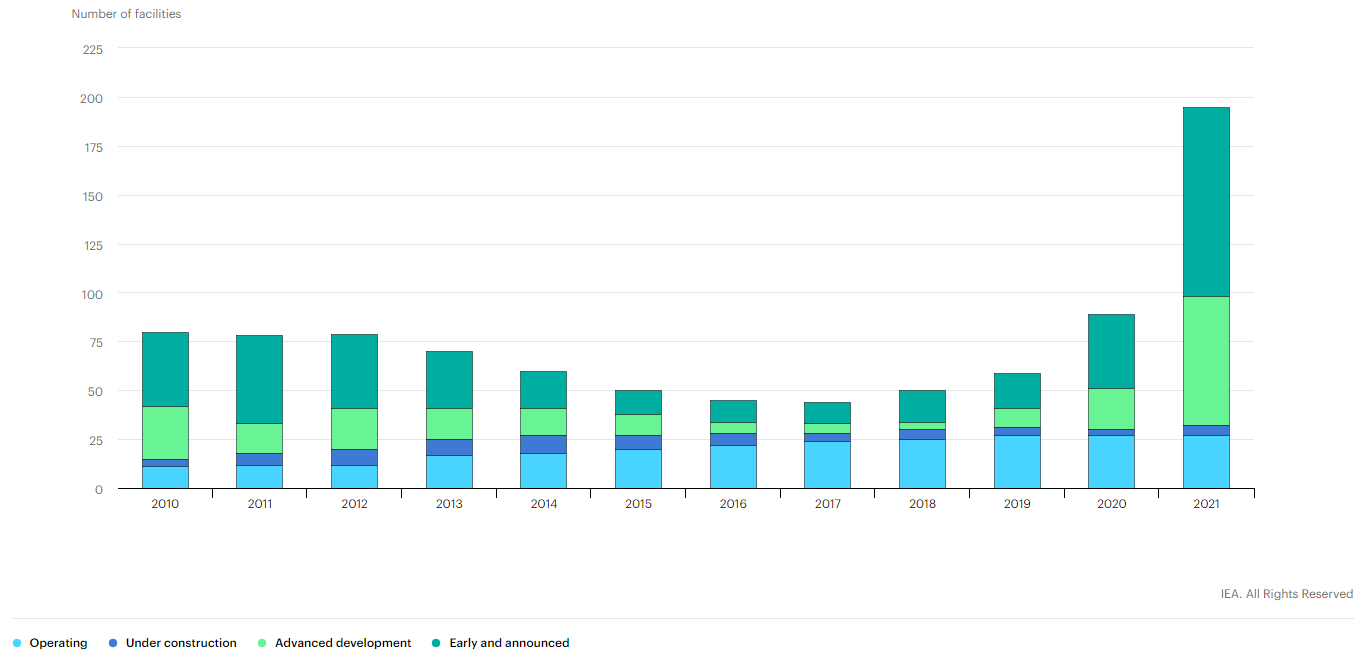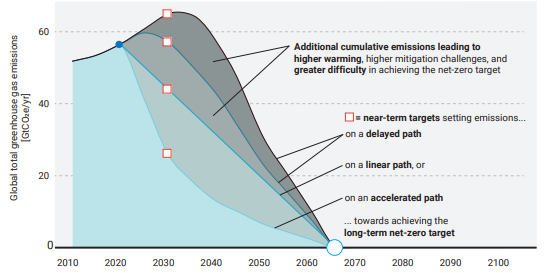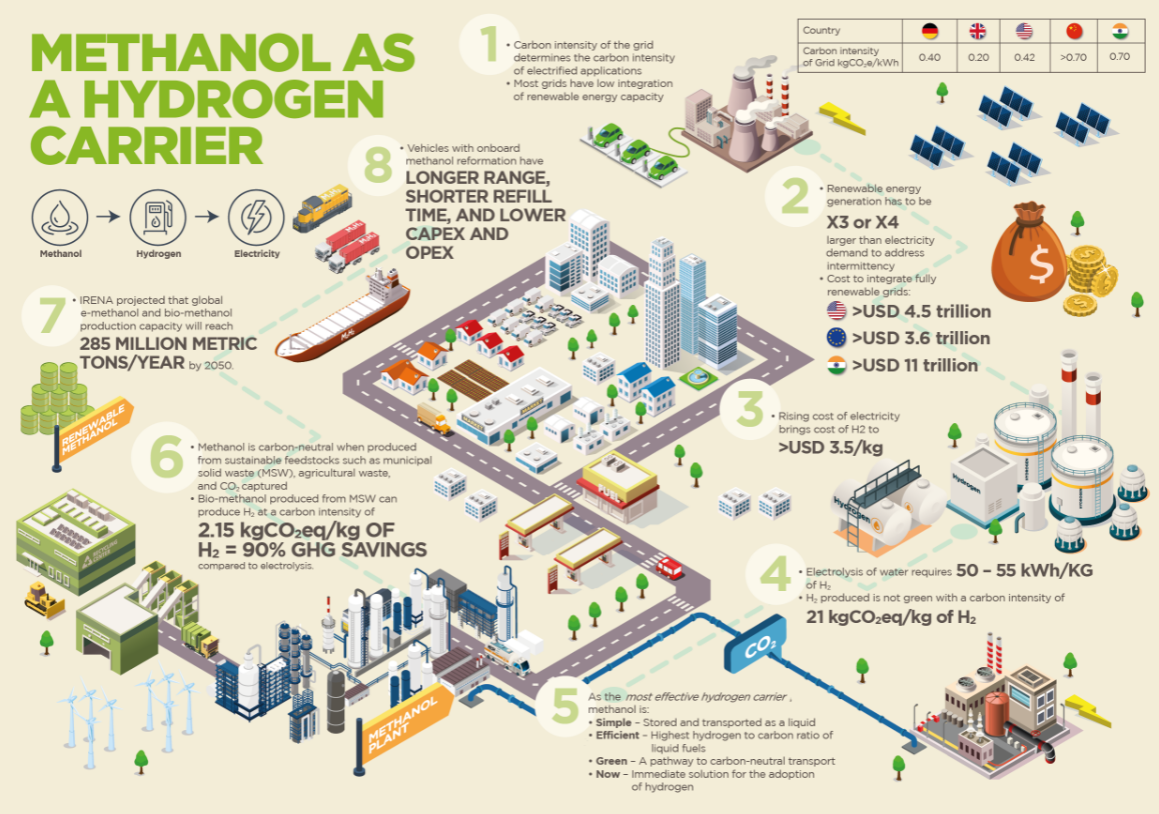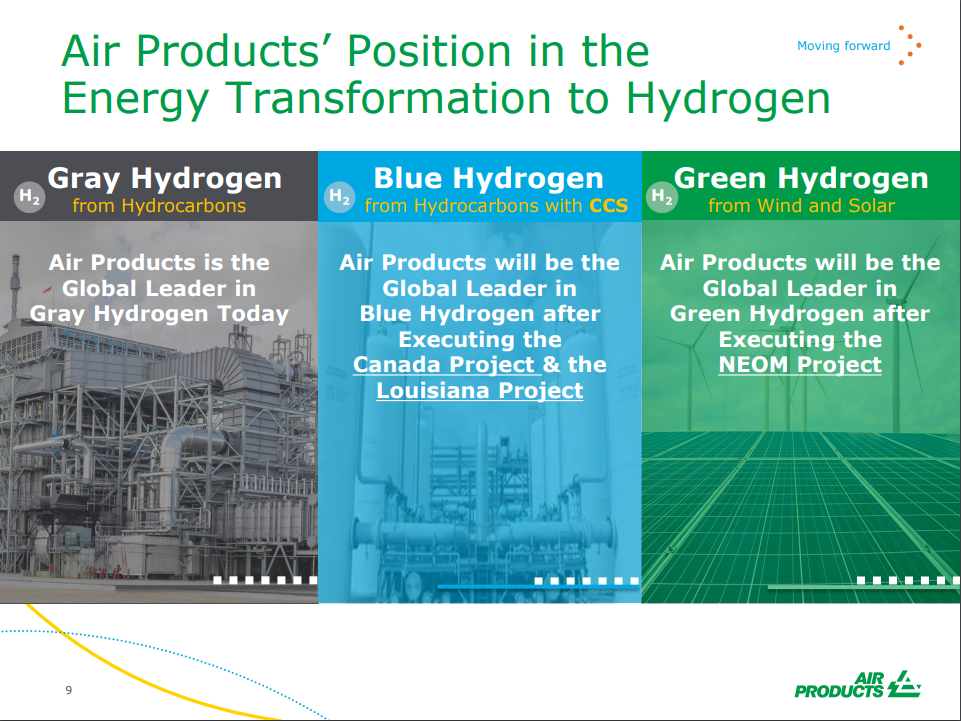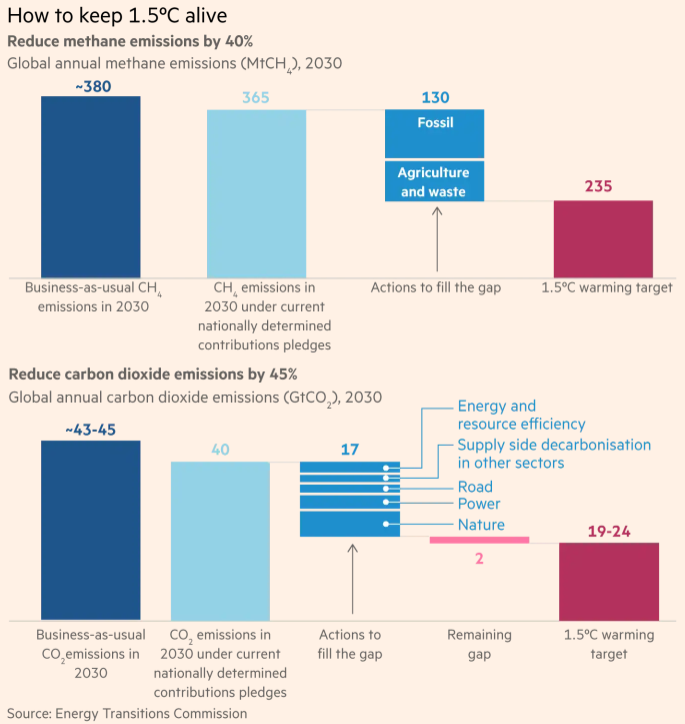There was a very strong focus at the WPC on the need for carbon pricing in the US to facilitate investment decisions around many initiatives focused on carbon abatement. The consensus was very much that a carbon price – so a cap and trade system like they have in Europe – was the best mechanism, and far more likely to drive action and limit inflation than a carbon tax. This is something that we broadly agree with but the US is a bit late to the game and the right caps need to be set so that CO2 prices don’t languish at very low levels for years, as they did in Europe. Jim Fitterling of Dow was somewhat provocative in his comments around nuclear power, but we see this as part of a broader initiative aimed at getting a serious dialogue moving around how we make the practical steps needed to drive carbon lower. Nuclear power provides stable baseload and is carbon-free – a small modular nuclear reactor could generate enough steam and enough power to drive the decarbonization of major chemical complexes – one investment for example could transform one of the larger Dow sites. If we are going to get to net-zero targets without nuclear, we need much more progressive policies – especially around carbon pricing – which is likely the direction that Dow would like to take the discussion.
Everyone Is Pushing For A US Carbon Policy, Except Congress
Mar 24, 2022 2:54:22 PM / by Graham Copley posted in ESG, Climate Change, Sustainability, Carbon Tax, CO2, Carbon Price, Emission Goals, Inflation, Chemical Industry, Net-Zero, decarbonization, Dow, carbon abatement, carbon emissions, carbon pricing, nuclear power, WPC
Carbon Pricing Will Be Critical For Investment Decisions, Lack of Clarity Will Cause Delays
Mar 3, 2022 1:35:16 PM / by Graham Copley posted in ESG, Hydrogen, Climate Change, Sustainability, CCS, Blue Hydrogen, CO2, Carbon Price, bp, carbon dioxide, carbon abatement, manufacturing, carbon pricing, Evonik, cost curves
The Evonik discussion around CO2 prices is both relevant and important as CO2 values will be a critical component of investment decisions for many industries going forward. Those waiting for explicit guidance on CO2 prices are likely to be disappointed as we are not seeing much global coordination today and as we discussed yesterday, the European market, which had been the better indicator in our view over the last 18 months, has collapsed in the wake of the Russia/Ukraine conflict as some countries ask for it be suspended, while speculators are assuming that lower gas supplies into Europe will lead to lower emissions and less demand for credits. One of the options here is to take the bp approach and assume a carbon price in investment decisions. Early last year, bp indicated that it would fix on a carbon price of $100 per ton in its longer-term planning. We believe that this is a ballpark steady-state for CO2 pricing but that traded prices could be quite volatile around that level, depending on the mechanisms used. But even if we have a consistent carbon price, we will see significant changes in industry costs and competitive cost curves based on the various costs of carbon abatement. We have written in the past that we could see huge benefits to the US manufacturing base because of the combination of relatively low-cost hydrocarbons and relatively low-cost CCS opportunities. By contrast, we see costs rising steeply in places like central West Europe, where the local CCS opportunity is off the table. Even if Europe can produce cost-effective blue hydrogen on the coast, getting it to central Europe will be an issue. The landscape is less clear in Asia, but we expect to see some competitive edge for countries with low-cost CCS options – Malaysia, Indonesia, Thailand, and parts of China. See more in today's daily.
No Carbon Price In The US: A Competitive Disadvantage!
Jan 26, 2022 2:11:28 PM / by Graham Copley posted in Climate Change, Methane, CCS, Energy, Carbon, Emissions, Carbon Price, carbon value, natural gas, carbon values, low carbon, methane leakage, carbon pricing, fuels, reshoring, oil and gas, pipeline emissions, low carbon materials
The linked Canada headline supports one of the themes that we have been highlighting for a while, which is that certainty around carbon pricing is likely to drive investment rather than discourage it. Canada, and specifically Alberta, has seen several new investments announced over the last few months because manufacturers can now add some certainty around carbon values to other advantages offered by the province, including cheap natural gas and what appears to be low-cost CCS opportunities. We are also seeing investments shape up in Europe – also to produce low carbon materials and fuels – and this is also driven by greater certainty around carbon value. The lack of a carbon price in the US is becoming a competitive disadvantage for the country and those opposing it in government are, in our view, very misguided. If China can develop a credible and broad carbon pricing mechanism, it will also likely gain investment dollars, possibly at the expense of the US. Not having a sound climate change and carbon value framework in the US is a major threat to many of the reshoring initiatives that US retailers and manufacturers would like to see.
Few Carbon Prices Justify Abatement Investment Today
Jan 6, 2022 12:06:19 PM / by Graham Copley posted in carbon abatement, Carbon Sequestration, carbon pricing
As the chart below shows, there are some very wide ranges in carbon prices today, with only the European price (and only this year) reflecting an approximation to the cost of physically abating carbon dioxide emissions. We cover carbon values in detail in our focused ESG and Climate work and have been suggesting since before we began the dedicated service that it will take an incentive of around $100 per ton of CO2 to get the acceleration of investment needed for CCS to play a major role in emission abatement and perhaps high levels than this for alternative heating technologies than furnaces to makes sense in areas where CCS is not an option.
More CCS Plans Than Action Until We Get Proper Carbon Pricing
Nov 26, 2021 12:37:02 PM / by Graham Copley posted in ESG, Hydrogen, Carbon Capture, CCS, Blue Hydrogen, CO2, IEA, carbon footprint, tax credit, blue ammonia, climate, CO2 value, chemical companies, carbon pricing, CCUS, Power companies, oil companies, greenfield investment
We note the IEA work on CCUS in several charts below and this is good timing relative to our ESG and climate report this week – which focused on carbon pricing, something we believe is necessary to promote more real activity in CCUS. In the Exhibit below, it is important to note how many projects are in “development” rather than operational or under construction. It is also worth noting that the number of projects under construction has not grown since 2019. One of the reasons for this is that increased activity at the planning stage is then followed by a delay associated with permitting, which depending on the region can take 2 plus years. The other constraint is uncertainty, with many of the projects under consideration waiting for something to change, either local values of CO2 or mandates or direct government support. For example, the large project planned for Houston and championed by several oil, power, and chemical companies is unlikely to move forward without a higher tax credit for CO2 sequestration or without some other incentive. The mid-West projects targeting the ethanol industry will also need permits, not just for the wells but also for the many hundreds of miles of proposed pipelines.
Uncertainty And ESG Pressure Likely To Cause More Energy Price Spikes
Nov 24, 2021 2:09:08 PM / by Graham Copley posted in ESG, Climate Change, Sustainability, Renewable Power, Energy, Emissions, ESG Investing, Net-Zero, carbon footprint, carbon abatement, carbon offset, energy transition, climate, energy inflation, energy prices, carbon pricing, ESG Pressure, fossil fuels
In a media interview earlier this week (more details to follow) we were involved in a discussion about inflation and specifically energy. The discussion covered much more than this, but the chart below is perhaps one of the easier ways of showing where our concern lies, and it ties directly to the behavioral patterns that are emerging concerning climate change and ESG focused investing. As noted in the title of the chart, the likelihood that the linear path from here to net-zero will work is very low, given that we would need global government coordination now, and we are far from it. The other scenarios are much more likely, at least in the early years, and they call for an increase in emissions, which implies growing demand for fossil fuels and other materials that have a high emissions footprint. If you are an oil or gas producer and you look at the chart you could quickly conclude that while your products are in demand today and likely to be in growing demand for several years, the longer-term outlook is very unclear. This might slow down your investment plans, or at least make you think twice about the shorter lead-time projects – such as on-shore and shale-based. However, it could kill any longer-term offshore/deepwater projects that take many years to bring on stream. Today we see energy investment hesitancy everywhere (see our Chemical Blog), but at the same time, we do not see the global coordination to drive a faster energy transition, assuming we had the materials and the investment dollars to move any faster. The risk that we run out of produced fossil fuels from time to time over the next 3-5 years is very high.
There Is No Single Solution For Carbon Abatement
Nov 19, 2021 12:23:34 PM / by Graham Copley posted in ESG, Hydrogen, Carbon Capture, Climate Change, Sustainability, Methanol, CO2, Emissions, Ammonia, carbon abatement, batteries, climate, COP26, carbon credits, carbon pricing
We are going to focus our Sunday Thematic this week (will be found here) on a couple of related topics: alternative technologies that only make sense when prices are high, and whether this has changed with ESG and climate pressure, and ESG solution fixation – “methanol is the only solution” – see infographic below – or it’s hydrogen or ammonia or batteries. Sticking with the theme that seems to have hit a chord with COP26 attendees and something that we discussed in a report around carbon capture several months ago – we cannot let a foolhardy quest for “perfect” get in the way of more economic “good enough” solutions. The emission issues are generally site and process specific and different solutions will be more practical and affordable for different processes and in different geographies – there is no “one size fits all” solution.
Green Hydrogen Plans Look Expensive, Blue Looks Easier
Nov 5, 2021 3:15:29 PM / by Graham Copley posted in ESG, Hydrogen, Green Hydrogen, CCS, Blue Hydrogen, Energy, Air Products, Ammonia, carbon footprint, natural gas, solar, carbon pricing
COP26: Some Tough Decisions For A Divided Group
Oct 27, 2021 1:44:48 PM / by Graham Copley posted in ESG, Sustainability, Methane, CO2, Net-Zero, methane emissions, COP26, Climate Goals, CO2 emissions, carbon pricing
Our ESG and Climate Piece today focuses heavily on COP26, which begins this weekend, and has been the subject of many of this week's stories, as attending countries make their concerns and preferences known and as companies and lobbying groups try to be heard. The linked FT article talks about the minimum needs from COP26. We highlight this because we have been talking about the same things for months – the significant gap between what is pledged for 2030 and what is needed, and the need to attack emissions of methane and CO2 aggressively. The methane issue can likely best be achieved through legislation – especially as some of the leaks around the world may not belong to anyone, who could benefit from an incentive or be penalized for the leak. The CO2 emission issue will always be bet addressed through a pricing mechanism on carbon.


